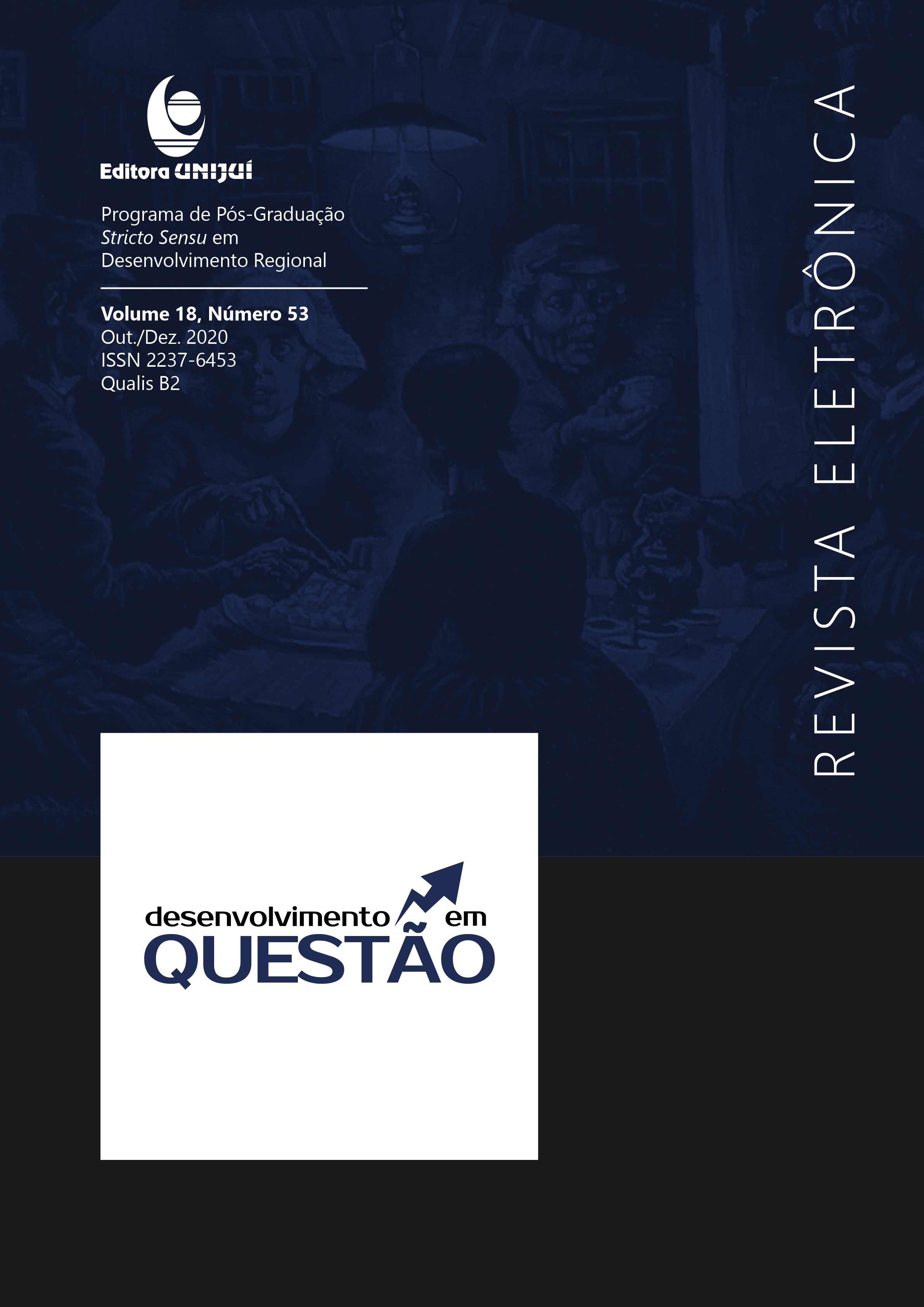Elementos Emancipatórios na Pobreza Multidimensional: A Gestão dos Ativos Intangíveis e do Capital Social
DOI:
https://doi.org/10.21527/2237-6453.2020.53.183-201Palavras-chave:
Pobreza. Capital Social. Ativos sociais. Ativos Intangíveis. Gestão Social.Resumo
O estudo objetiva uma visão da pobreza em uma perspectiva emancipatória que possibilita problematizar as concepções de pobreza multidimensional com cerne no discernimento e gestão de ativos intangíveis e capital social. Para tal finalidade, realizou-se uma revisão da literatura narrativa no desenvolvimento deste ensaio teórico, tendo como recorte a pobreza, os capitais e os ativos intangíveis. O conteúdo contribui com a visão multidimensional da pobreza, para a qual essa situação não se baseia somente na escassez da renda, indo além do preconizado na teoria econômica tradicional. Os fundamentos teóricos perpassam pelas abordagens sociológicas de Sen (2000) e de Bourdieu (1986). O resultado indica que as dimensões relacionais não são apercebidas e aplicadas no campo da Administração, visto que trabalham com o capital social na vertente financeira e de investimentos. Existe uma lacuna a ser explorada que abrange as ambiguidades conceituais, entre elas, o conceito do capital social com enfoque econômico e financeiro que deixa à margem as relações sociais imersas nas origens e mutações dos capitais. Essa visão capitalista se contradiz com a sustentabilidade que se torna essencial aos estudos da pobreza, ou melhor, das pobrezas a serem estudadas pelo campo da Administração.
Downloads
Publicado
Como Citar
Edição
Seção
Licença
Ao publicar na Revista Desenvolvimento em Questão, os autores concordam com os seguintes termos:
Os trabalhos seguem a licença Creative Commons Atribuição 4.0 Internacional (CC BY 4.0), que permite:
Compartilhar — copiar e redistribuir o material em qualquer meio ou formato;
Adaptar — remixar, transformar e criar a partir do material para qualquer fim, inclusive comercial.
Essas permissões são irrevogáveis, desde que respeitados os seguintes termos:
Atribuição — Atribuição — os autores devem ser devidamente creditados, com link para a licença e indicação de eventuais alterações realizadas.
Sem restrições adicionais — não podem ser aplicadas condições legais ou tecnológicas que restrinjam o uso permitido pela licença.
Avisos:
A licença não se aplica a elementos em domínio público ou cobertos por exceções legais.
A licença não garante todos os direitos necessários para usos específicos (ex.: direitos de imagem, privacidade ou morais).
A revista não se responsabiliza pelas opiniões expressas nos artigos, que são de exclusiva responsabilidade dos autores. O Editor, com o apoio do Comitê Editorial, reserva-se o direito de sugerir ou solicitar modificações quando necessário.
Somente serão aceitos artigos científicos originais, com resultados de pesquisas de interesse que não tenham sido publicados nem submetidos simultaneamente a outro periódico com o mesmo objetivo.
A menção a marcas comerciais ou produtos específicos destina-se apenas à identificação, sem qualquer vínculo promocional por parte dos autores ou da revista.
Contrato de Licença (para artigos publicados a partir de 2025): Os autores mantêm os direitos autorais sobre seu artigo, e concedem a Revista Desenvolvimento em Questão o direito de primeira publicação.











